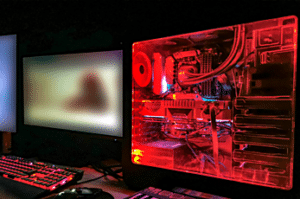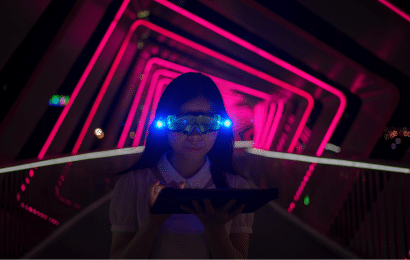The gaming industry has undergone a remarkable evolution, transcending its origins as a niche hobby to become a global phenomenon that significantly shapes and influences contemporary pop culture. In just a few decades, video games have transitioned from simple pixelated experiences to intricate virtual worlds that captivate the imaginations of billions across the globe. This transformation has not only revolutionized entertainment but has also deeply impacted various facets of pop culture, including art, music, fashion, and even social interactions. As technology continues to advance and gaming experiences become more immersive and accessible, the industry’s influence on pop culture is poised to grow even further, solidifying its status as a cultural powerhouse that resonates with individuals of all ages and backgrounds. This essay delves into the multifaceted impact of the gaming industry on pop culture, exploring how it has redefined creativity, fostered new forms of social engagement, and forged connections that extend beyond the confines of the virtual realm.

Analyzing the gaming industry and its impact on pop culture:
-
Mainstream Integration: The gaming industry has transcended its niche origins to become a mainstream cultural force. With games appealing to a wide demographic, from young children to adults, it has transformed from a subculture to a dominant cultural form. This shift has introduced gaming terminology, characters, and references into everyday conversations, reflecting its integration into the collective consciousness.
-
Artistic Expression: Video games are increasingly recognized as a form of interactive art. Game design, graphics, and storytelling have evolved to rival traditional art forms. Games like “Journey” and “The Last of Us” are celebrated for their emotional narratives, pushing the boundaries of storytelling and emotional impact, elevating the medium’s status within pop culture.
-
Crossover Influence: The gaming industry has woven itself into other cultural domains. Movies, television shows, and music now frequently reference or incorporate elements from popular games. This crossover has blurred the lines between different forms of media, expanding the reach and influence of gaming on a wider audience.
-
Iconic Characters and Symbols: Characters like Mario, Sonic, Lara Croft, and Master Chief have become cultural icons with global recognition. These characters transcend the gaming world, entering the realms of fashion, merchandise, and advertising. Their influence has become a testament to the industry’s power to create enduring symbols.
-
Social and Online Communities: The rise of online multiplayer games and streaming platforms has fostered new social interactions. Gamers form communities around shared interests, engaging in discussions, collaborations, and even charity events. Platforms like Twitch and YouTube Gaming have turned gamers into influencers, impacting trends, promoting products, and shaping pop culture preferences.
-
Economic Impact: The gaming industry is a significant economic player, surpassing even the movie and music industries in terms of revenue. This economic clout has garnered attention from advertisers, sponsors, and investors, further integrating gaming into mainstream culture. Esports tournaments, for instance, draw enormous crowds and offer substantial prize money, showcasing gaming’s economic potential.
-
Technological Innovation: Gaming has consistently pushed the boundaries of technological innovation. From graphics advancements to virtual reality and augmented reality experiences, gaming has often been at the forefront of technology adoption. This influence extends to fields beyond entertainment, such as medical and military applications, leaving a mark on technological progress as a whole.
Read More – Best WordPress Themes For Bloggers And Writers
Bottom Line :
In summation, the gaming industry’s influence on pop culture is undeniable and far-reaching. From pioneering technological advancements to fostering vibrant online communities, gaming has reshaped how individuals engage with entertainment and with each other. The industry’s ability to create immersive narratives, iconic characters, and shared experiences has not only elevated video games to the forefront of entertainment mediums but has also solidified its place as a powerful shaper of modern pop culture trends. As the gaming landscape continues to evolve, its impact is likely to intensify, leaving an indelible mark on how we create, communicate, and connect in the ever-evolving tapestry of popular culture.









